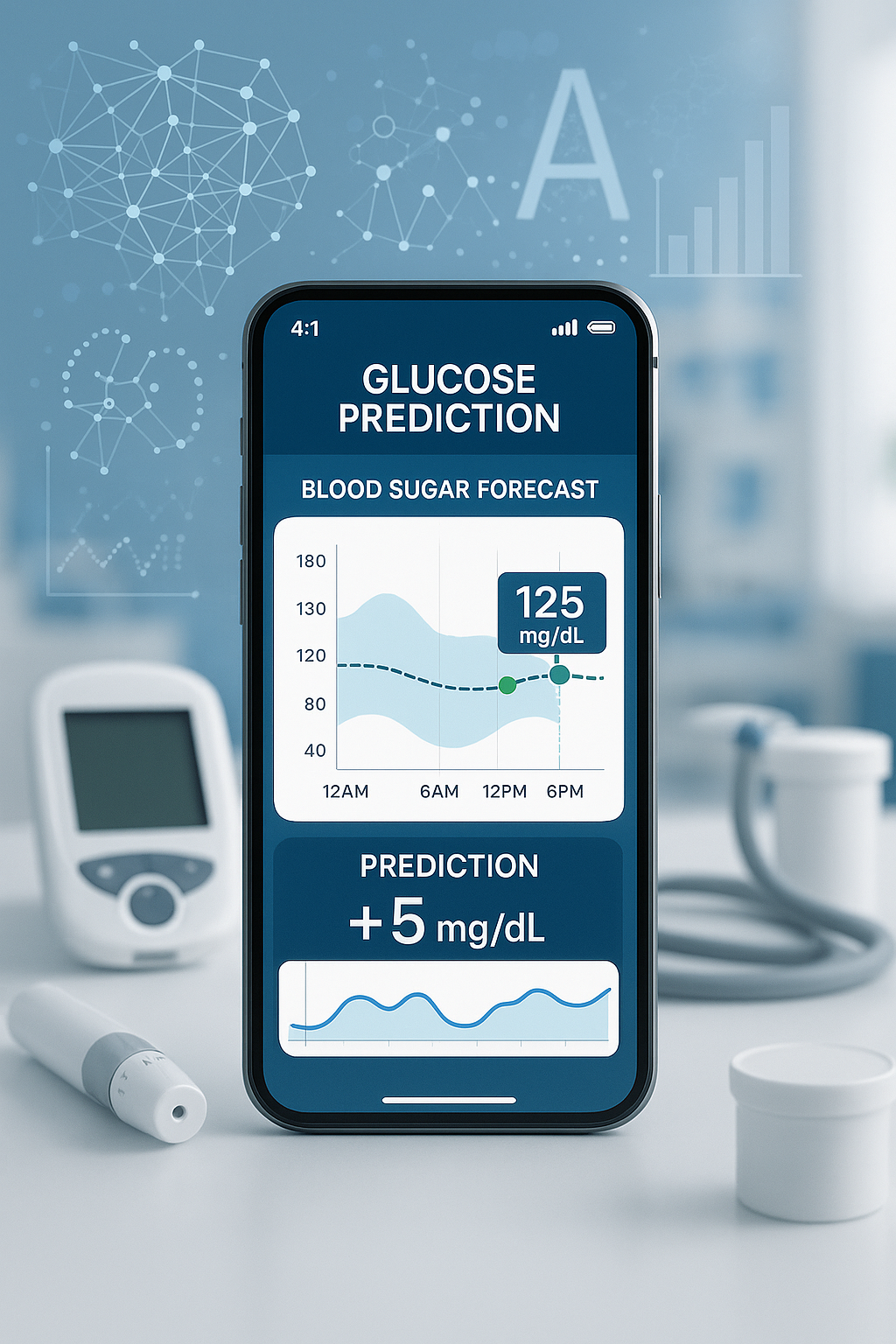In a groundbreaking collaboration that promises to transform diabetes management worldwide, IBM and Roche have unveiled their innovative AI-enabled solution that provides patients with glucose predictions, essentially offering a “weather forecast” for blood sugar levels. The Accu-Chek SmartGuide Predict app, officially announced on June 2, 2025, represents a significant leap forward in personalized healthcare technology.
The revolutionary application, which launched in Switzerland earlier this year, leverages advanced artificial intelligence algorithms to analyze patterns in glucose data and predict future blood sugar fluctuations. This predictive capability enables patients to make proactive therapy decisions and helps prevent both short-term complications like hypoglycemia and long-term health issues associated with diabetes.

“Imagine having a weather forecast, but for your blood sugar,” explained Dr. Michael Weber, Head of Digital Health Solutions at Roche Diabetes Care. “Our AI system analyzes multiple data points including historical glucose readings, meal patterns, exercise routines, and medication schedules to provide patients with actionable insights about their glucose trends.”
The collaboration between IBM’s advanced AI capabilities and Roche’s deep expertise in diabetes care has resulted in a solution that addresses one of the most challenging aspects of diabetes management: the unpredictability of blood glucose fluctuations. Traditional glucose monitoring provides real-time readings, but the new AI-powered system goes a step further by anticipating future changes.
Christian Keller, General Manager of IBM Switzerland, emphasized the importance of cross-industry collaboration in healthcare innovation. “This partnership with Roche underlines the potential of AI when it’s implemented with a clear goal—assisting patients in managing their diabetes. With our technology and consulting expertise, we can offer a trusted, customized, and secure technical environment that is essential to enable innovation in healthcare.”
The AI system continuously learns from user data, becoming more accurate over time as it adapts to individual patterns and lifestyle factors. Clinical trials conducted in Switzerland showed that patients using the predictive app experienced a 23% reduction in severe hypoglycemic episodes and improved overall glucose control compared to traditional monitoring methods.
The technology works by integrating data from continuous glucose monitors with lifestyle information input by users. Machine learning algorithms then process this information to generate personalized predictions, typically forecasting glucose trends up to four hours in advance. The app provides users with color-coded alerts and specific recommendations for managing predicted glucose changes.
“This represents a fundamental shift from reactive to proactive diabetes management,” said Dr. Sarah Martinez, an endocrinologist at the University of Geneva who participated in the clinical trials. “Patients can now anticipate and prevent glucose excursions rather than simply responding to them after they occur.”
The global diabetes community has welcomed this innovation, particularly given the growing prevalence of the condition worldwide. According to the International Diabetes Federation, approximately 537 million adults currently live with diabetes, a number expected to rise to 783 million by 2045.
Roche and IBM plan to expand the availability of the Accu-Chek SmartGuide Predict app to additional European markets by the end of 2025, with regulatory submissions for the United States and other regions expected in early 2026. The companies are also exploring integration with other health monitoring devices and electronic health record systems to provide even more comprehensive diabetes management solutions.
This breakthrough demonstrates the transformative potential of AI in healthcare when applied thoughtfully and with patient needs at the center of innovation. As the technology continues to evolve, it may serve as a model for AI applications in managing other chronic conditions.
